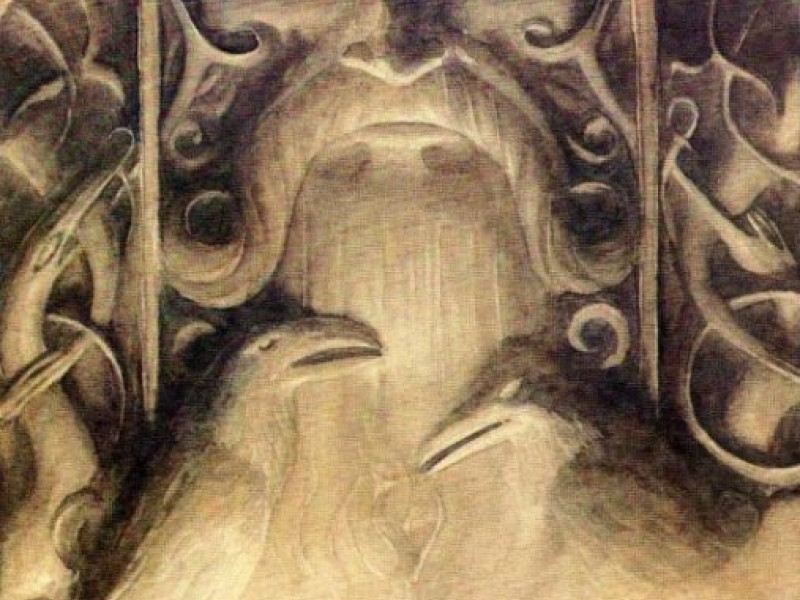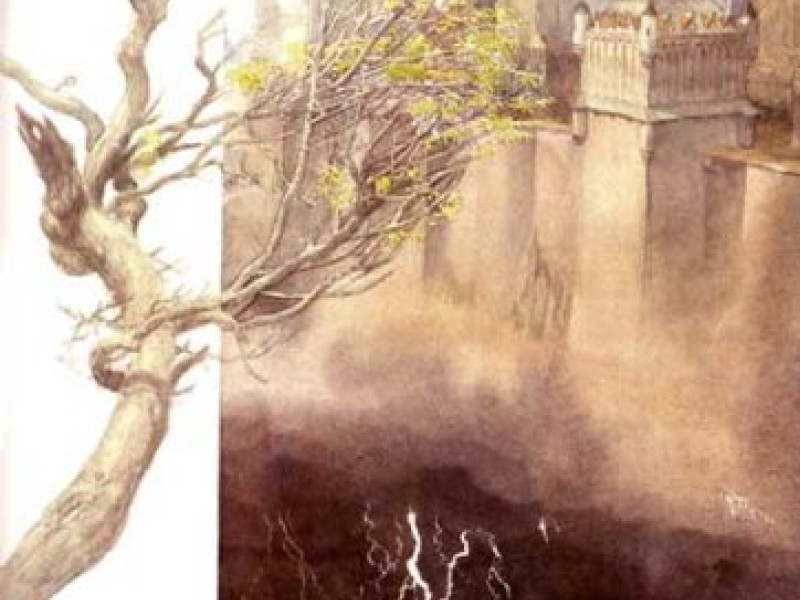Well of Knowledge
The Well of Knowledge was near one of the three roots of Yggdrasill. Yggdrasill or the World Tree was the giant cosmic ash tree that covered the nine worlds. The roots extended from three of the worlds: one from Asgard, the next one from the world of the frost giants (Jotunheim) and the third from Niflheim. The root near Niflheim is the well called Hvergelmir. The root that reached heaven (Asgard) was called Weird's Well, which was a holy well, where the gods often held court. Weird's Well was known by another name, Urdarbrunnr or "Well of Urda", because the Norns were its guardians.
The root that extended over the frost giants' world was a well that was called Mímisbrunnr or "Mimir's Well", because it was guarded by Mimir. Mimir was wise because he frequently drank from the well.
The price of drinking from the well was not small. Odin gave up one of his eyes so he could drink from the Well of Knowledge.
Heimdall, guardian of Bifrost (Rainbow Bridge) in Asgard, similarly sacrificed a body part. Heimdall gave up one of his earlobes to drink from the well.
There was also another version of how Odin gained knowledge from Mimir. See Head of Mimir.
Related Information
Sources
Gylfaginning, from the Prose Edda, written by Snorri Sturluson.
Voluspa ("Sibyl's Prophecy") and Sigrdrifumal ("Lay of Sigrdifa") from the Poetic Edda.
Related Articles
By Jimmy Joe



